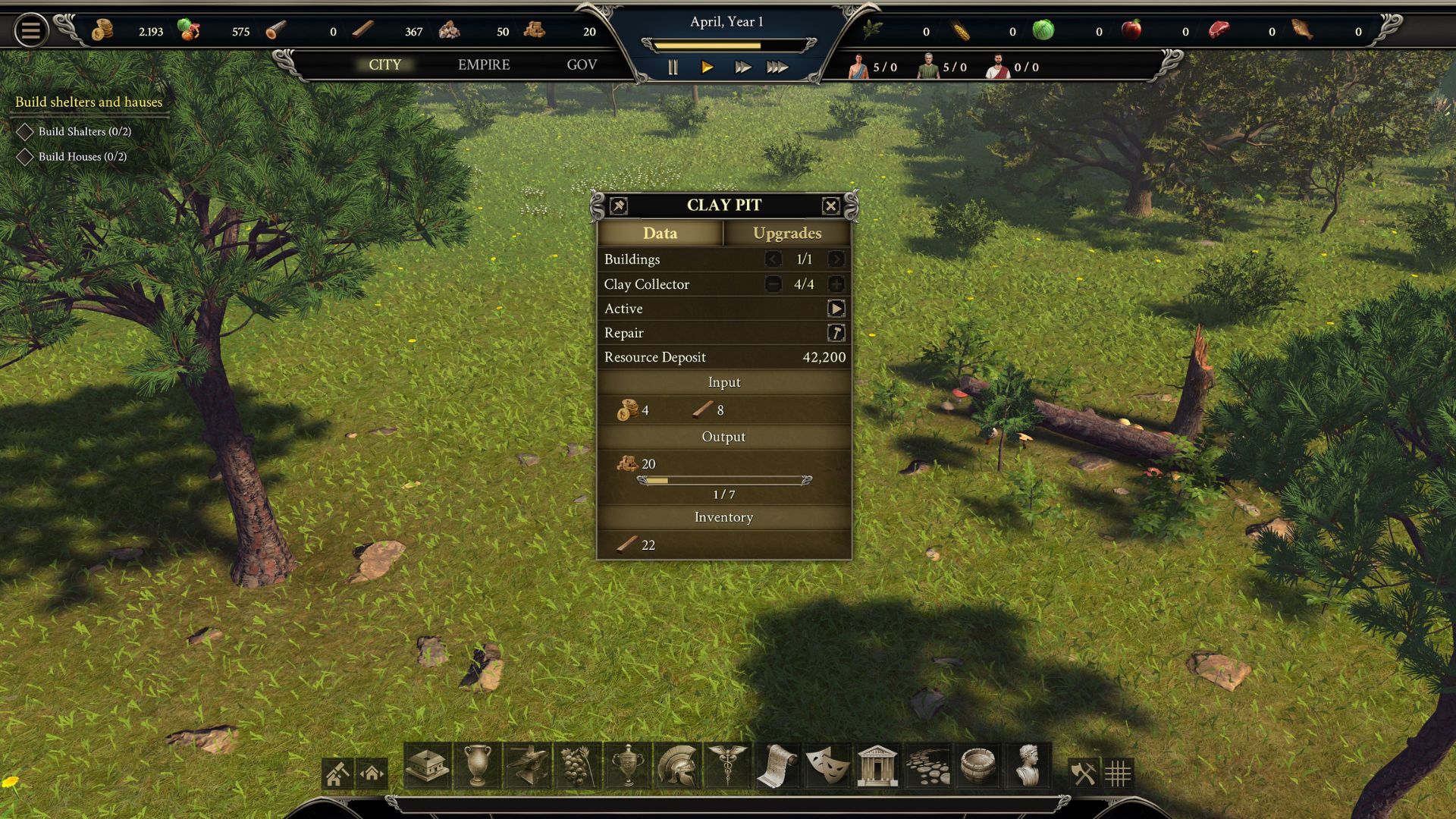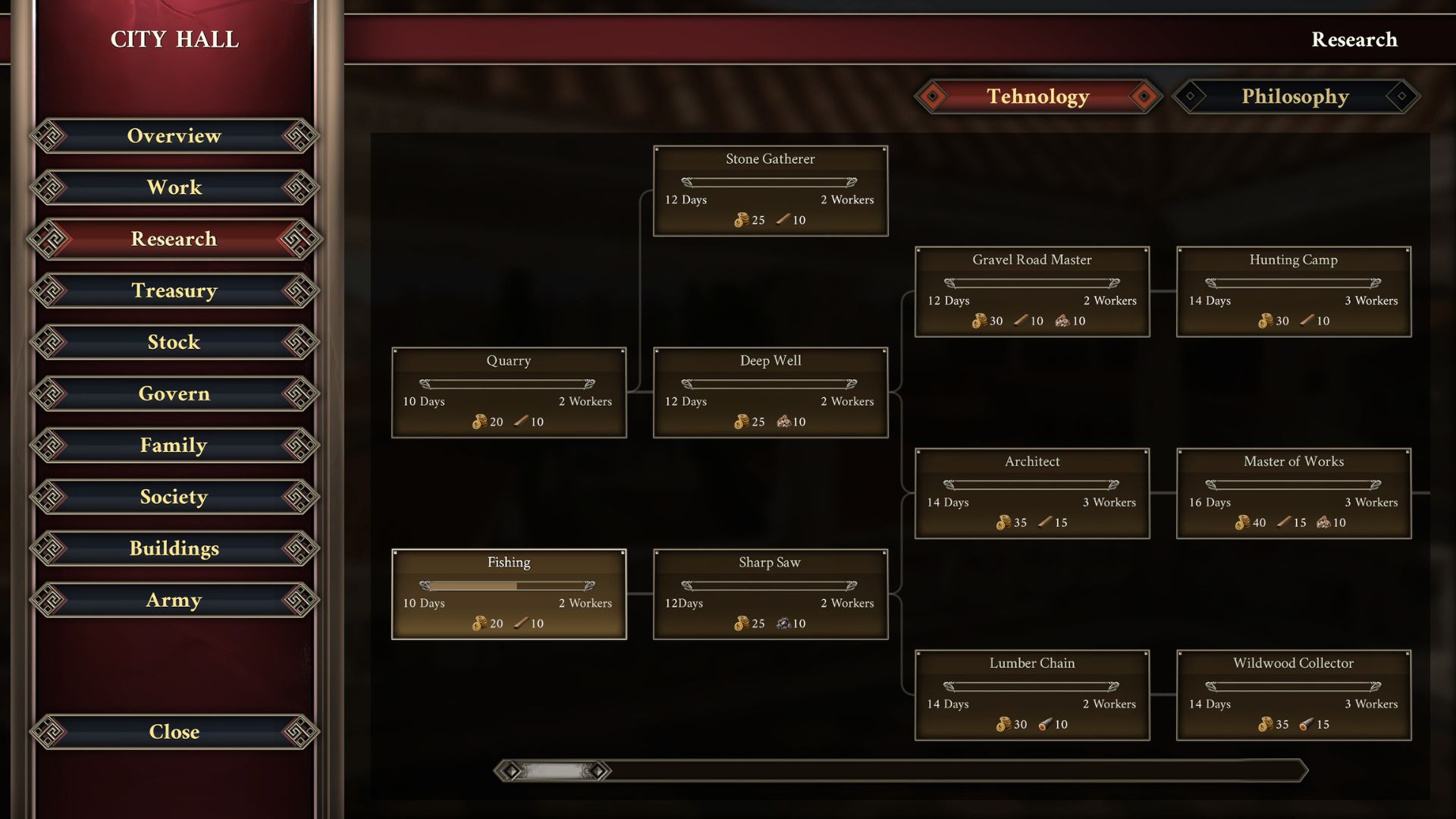After you’ve spent years creating a metropolitan paradise in Cities Skylines and a global utopia in Civilization, it can feel like there’s nothing left to do. Every trade route and district policy is as well organized as possible, so what’s your next challenge? Pompeii: The Legacy wants to fill that hole with alt-history Roman city building, and while the launch is a ways off, we keep learning more about the strategy sim. This time we hear about the logistics of construction and production, with plenty of new details to get incredibly over-excited about.
From Siscia Games solo developer Zeljko Kos, Pompeii: The Legacy is easily one of my most anticipated games right now. On the surface it’s a Roman city building game, but underneath it has shades of Cities Skylines 2, Civilization, and even a little Europa Universalis 4. In a slice of alternate history, you’re the head of a family tasked with rebuilding Pompeii after Mount Vesuvius’s eruption in 79 AD. You need to plan the revival, navigate the social and cultural pitfalls of Roman life, and even go out on excursions for the emperor.
I’ve already spoken with Kos at length about Pompeii: The Legacy’s inspirations and mechanics, but now we know even more about the best part: logistics. Kos details the construction, production, and management of your bustling alternate Pompeii in a new blog post, and there’s an awful lot to do.
Before you start throwing structures down, though, you’ve got to put your thinking hat on. Placing similar buildings like sawmills and forestry huts near one another grants passive bonuses, so make sure you’ve got the districts planned out ahead of time. The same goes for resource-gathering sites, as the closer they are to construction zones, the faster those buildings will pop up. Think of it like an organic version of districts in Cities Skylines, where instead of policy you build out each zone more fluidly.
Every good city needs a solid production pipeline to keep it afloat, and Pompeii: The Legacy is full of them. Production facilities make valuable resources with their own input and output, with workers and money required to operate. In fact, resources aren’t infinite in Pompeii: The Legacy, so you’ll need to relocate your facilities over the generations of game time. To pull on a similar mechanic, it sounds very similar to Civilization’s finite resources, just on a much smaller, municipal scale.

Speaking of these resources, there’s an entire stock management system to wrap your head around. You need to supervise your intake and consumption of individual materials and store them in appropriate buildings. Pompeii: The Legacy is also filled with more Vesuvius eruptions and natural disasters, so you’ll want to make sure you keep a healthy backup stock.
That’s not all either, as you’ll need to manage both technological and philosophical technology trees. Just like in Hearts of Iron, these are absolutely essential to thriving against the odds. New buildings, production methods, and social policies are locked behind the trees, which require money, manpower, and resources to be made available.

Kos says Pompeii: The Legacy aims to be a “deeply immersive” experience, and with these mechanics, it’s easy to see how. Everything has a price, and it’s up to you to allocate people, funds, and resources appropriately. If there’s one thing the great strategy and city building games get right, it’s administration. We’re always battling regulation, metropolitan oversight, and district planning.
Pompeii: The Legacy is coming to Steam in the third quarter of 2025, with a public alpha demo sometime before then. You can learn more about the city builder here.
With Pompeii: The Legacy still in development, we’ve put together all the best strategy games and simulation games you can try in the meantime.
You can also follow us on Google News for daily PC games news, reviews, and guides, or grab our PCGN deals tracker to net yourself some bargains.

